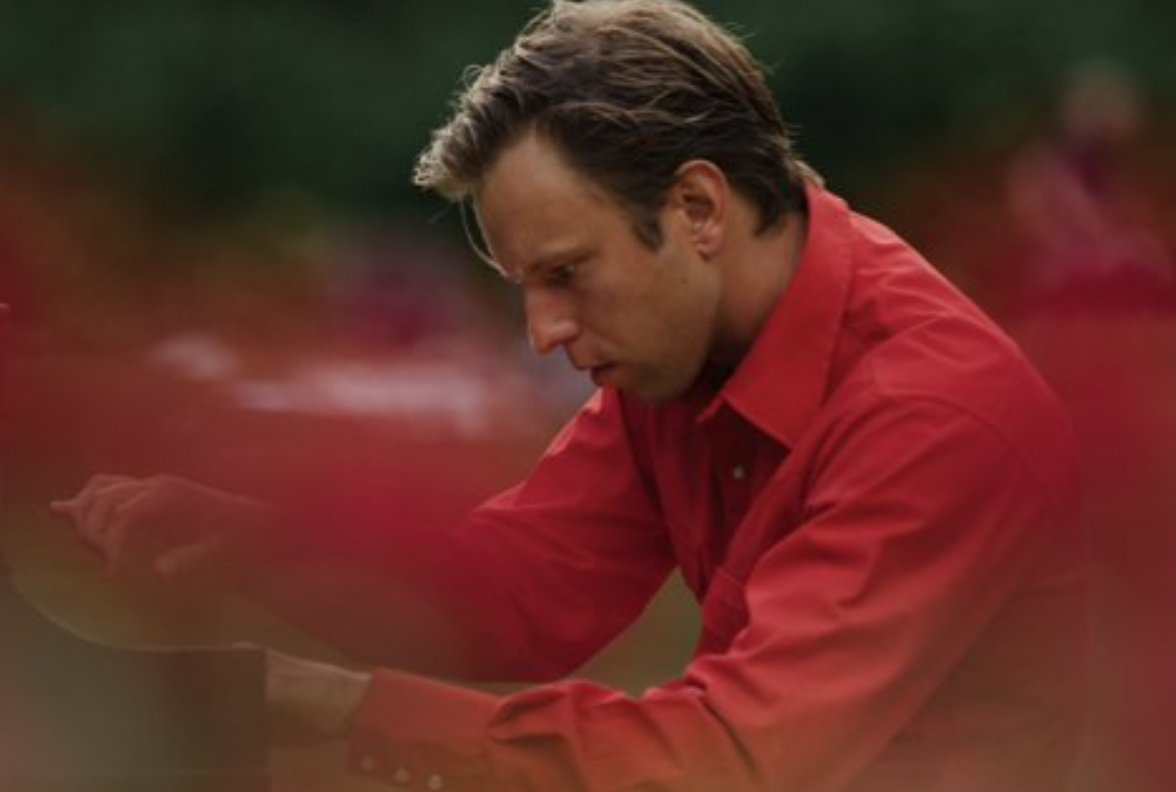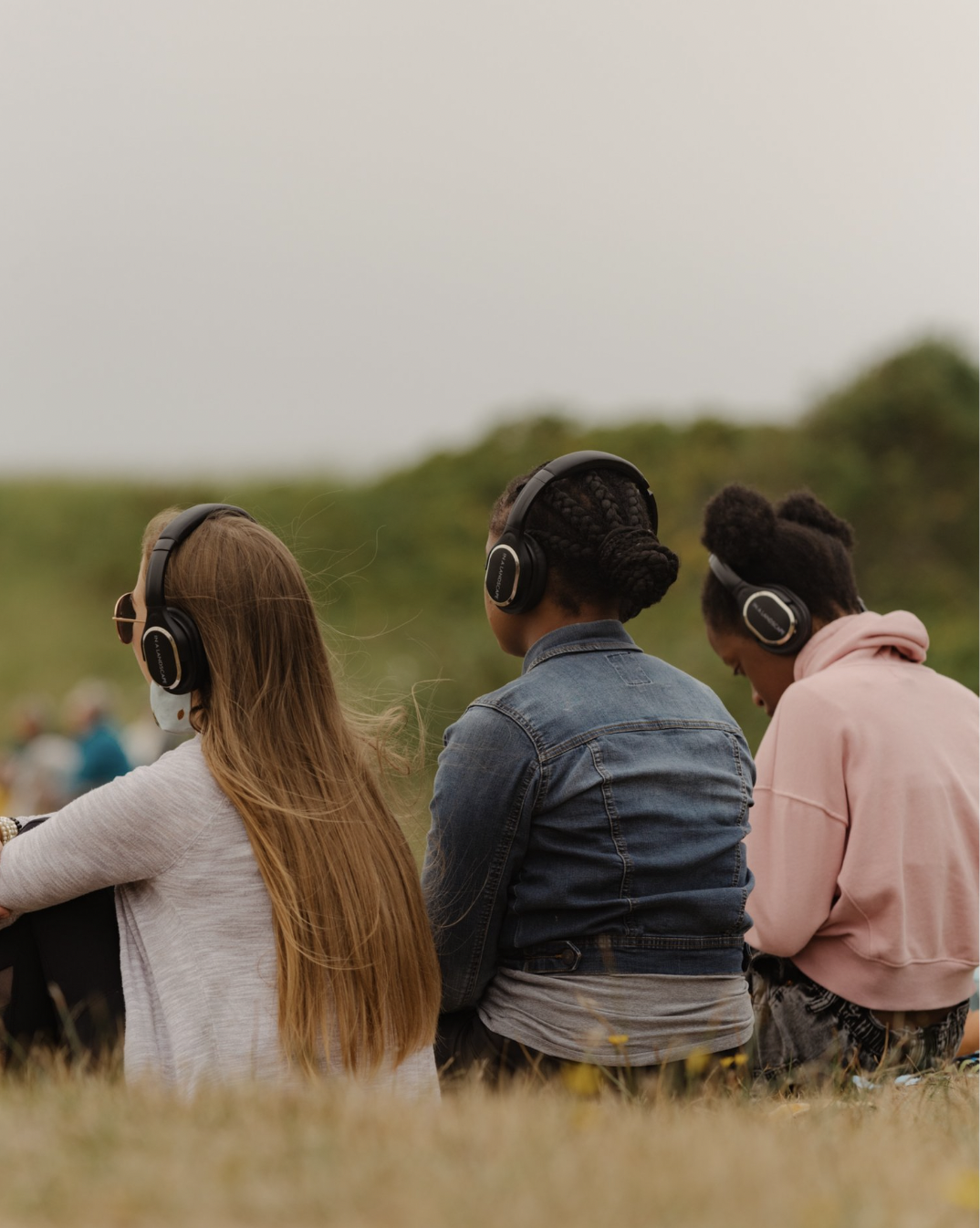
Some of the West’s most inspiring summer classical music performances aren’t happening in concert halls but outdoors, in scenic wilderness areas along the West Coast and beyond.
Now in its eighth season, Portland pianist Hunter Noack’s annual summer In a Landscape project brings him and a nine-foot Steinway to some of the West’s most magnificent vistas, where he distributes 200 pairs of wireless headphones to audiences of both locals and tourists, and plays live music by classical and contemporary composers.
“I love classical music and I love being outdoors,” Noack says. “I believe that spending time in nature makes us better people, and I also believe in the power of classical music and something about putting those two things together makes for a really magical experience.”
Starting with just a few Portland-area concerts, the project now ranges from Eastern Oregon’s soaring Wallowa mountains to Mounts Bachelor and Ashland (in Central and Southern Oregon, respectively), the Pacific Coast, the Columbia River Gorge, and points between and beyond. Since 2016, Noack has entertained over 30,000 people in California, Oregon, Washington, Montana, Idaho, New York, Utah, and Wyoming, in more than 200 performances.
This month, In a Landscape returns to California for its second run of shows in the Bay Area, including San Francisco Botanical Garden, Woodside’s Filoli Historic House and Garden, and Sonoma County’s Jack London State Historic Park.
California Connections
Noack grew up in rural Central Oregon loving two things above all: classical piano, and Oregon’s outdoor beauty. He was exposed to classical music early, as his mother Lori Noack ran the Sunriver Festival, which brought world-class performers to scenic Central Oregon. “Those are the people I looked up to,” he remembers. He began piano lessons at age 4, and “when I wasn’t practicing, I spent all my time outside.”
After matriculating at Michigan’s renowned Interlochen Arts Academy, and then the San Francisco Conservatory of Music and the University of Southern California, Noack pursued graduate study at London’s Guildhall School. There, after a concert by Portland band Pink Martini, a mutual friend introduced him to the band’s leader and pianist, Thomas Lauderdale, who offered Noack his downtown Portland loft and piano as a practice space for an upcoming Oregon performance while the band was away on tour. Their friendship blossomed, and the two pianists now live together there.
He’s also collaborated with Oregon Ballet Theater, Salem Orchestra, and Northwest Dance Project, and released an excellent CD last year.
The spark for In a Landscape ignited before Noack returned from Europe, when he was performing Arnold Schoenberg’s 1899 Transfigured Night at London’s Barbican Center. Since the original poem was set in a dark forest, Noack brought in 50 trees, playing the music as audience and actors dramatizing the story wandered through the impromptu indoor arbor.
“People responded to hearing classical music in a different environment,” Noack remembers, “so I thought ‘wouldn’t it be cool to use the actual outdoors’” in a performance. But he’s a stickler for sound quality, and alfresco acoustics can pose challenges, with the sound dissipating or distorted by amplification. His solution: passing out wireless headphones to attendees who want to use them, beaming the music he’s playing to them, even enhancing it with digital magic to make it sound even more like a concert hall.
Anyone can provide a personal soundtrack to natural experiences using their own smartphones and headphones. What’s different about “In a Landscape” (named after John Cage’s pastoral 1948 piano composition) is the combo of live performance and recital hall acoustic environment, allowing listeners to hear the music in a pristine sonic setting — while gazing out over gorgeous natural landscapes. (They can also listen to the unamplified sound sans headphones if they prefer, as I do.)
“There’s no barrier between your brain and the headphones,” Noack explains. “There’s something powerful about having a personal experience but also sharing it with other people. It’s not isolating.”

After the first year’s Portland area tryout performances earned major grant support, Noack now drives the piano around the West on a custom-built trailer (both donated by a prominent Portland arts supporter) that converts into a stage. A canopy provides cover from rain, snow, fog, or blazing sunshine — all of which he’s encountered.
With its early success resulting in more financial support (that initial $6,500 grant has now turned into a million-dollar budget), the program has burgeoned, last year drawing more attendees — 16,000 — than the first six years combined. They receive far more invitations to perform (including recently the South and East Coast) than Noack can accept, since the performance window is confined to summer months. Many performances are sponsored by local supporters, and Noack’s team (including his mom, Lori) works year-round rounding up donations and grants to enable the project to reach areas that can’t afford their own local sponsorships.
The project has brought together Central and Eastern Oregon farmers, loggers and cowboys (some on horseback), Portland arts matrons, mountain bikers in Eugene, tourists, and other diverse audiences together. And thanks to free and reduced-price tickets for locals, Noack’s performances have exposed thousands of people to classical music who’d never imagine coming to a formal concert hall. According to the website, almost half the audience last year attended for free and for nearly a third, an IAL concert was their first experience with live classical music. “We’re bringing together people who wouldn’t ordinarily be in the same space,” Noack says.
Sometimes guests join him, from Native American flutists to the musicians of Pink Martini. Last year’s shows at Glen Ellen’s Jack London State Historic Park, for example, also featured live painters and a pair of local dancers.
“It was so beautiful,” recalls Susan St.Marie, the park’s Director of Program and Volunteer Management. “The weather was perfect. We have this great big open meadow area and people just brought their blankets, chairs, picnic baskets, bottle of wine. People wandered around. It was like a magical experience, and I don’t use that word often. You just lose yourself in the sound. I’m sure we introduced the park to people who’ve never been here before and will again this year. Everyone enjoyed it so much that I told [Noack] afterwards, ‘OK you’re coming back next year, right?’”
Last year’s two shows drew more than 100 visitors, and this year’s ticket sales are nearing 200, with space remaining for another 200 at press time.
Even Noack has been surprised “at the level of intensity that people experience the music,” he says. “I think it has to do with being free to have whatever experience they want, to bring a picnic basket or a bottle of wine or climb a tree or take a nap, and because it’s so open ended, people are really able to relax into the place.”
With improved wireless tech and the piano rebuilt by Oakland’s John Callahan, Noack says the sound this year is now much refined. He now has a staff of four in Portland and a six-member summer road crew, and also draws on local volunteer support.
“It feels like I’m part of something, like we’re all in this together,” he says. “It’s my project, but it’s grown so much beyond me. We get to support a whole team of people who work on this all year round and travel around like a little circus. It still feels like a dream job.”

